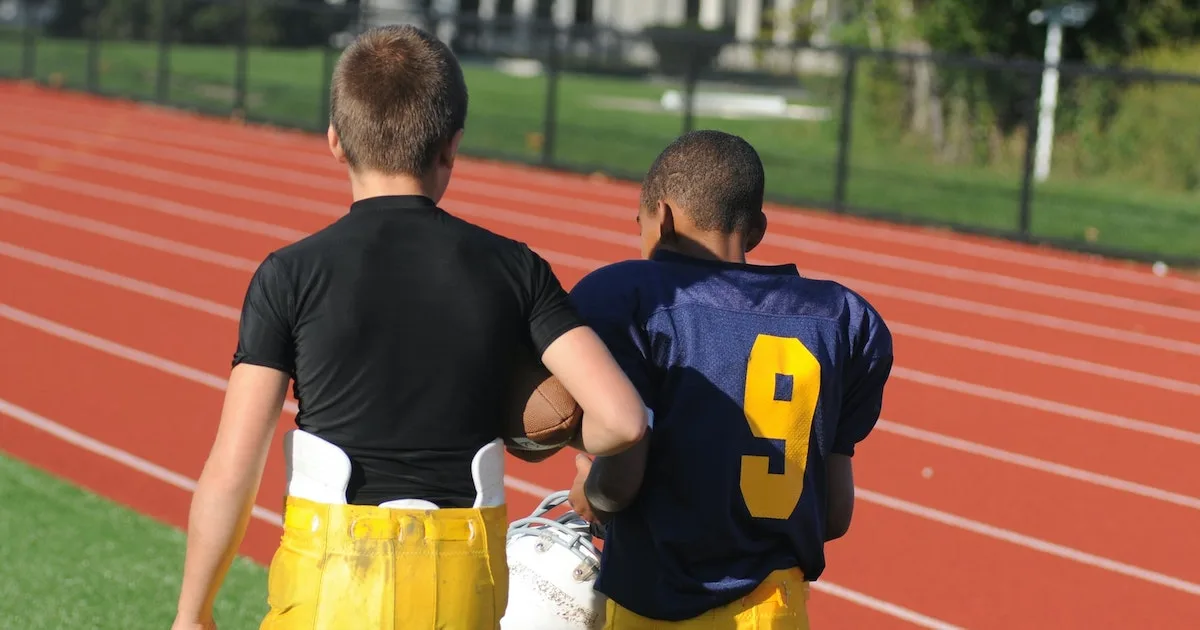Teaching Youth Athletes to Become Team Players, On and Off the Field
The Jersey Watch Team Last updated: January 25, 2022


The first lesson players need to learn in sports is that there's no "I" in team. But it's up to coaches and parents to reinforce that lesson. Teaching your youth athletes to become team players has obvious on-field benefits.
However, the lessons these kids take from the field to the classroom or office will impact their lives long after the season is over. At the root of teamwork is reliability, adaptability, and sportsmanship.
Read on for some quick tips to teach your athletes to become team players.
Teaching Good Communication Skills
This is straightforward: the team that communicates well plays well. Communication is at the core of teaching youth athletes to become team players. Sustained, engaged communication naturally engrains the value of teamwork in their developing minds.
Communication goes further than just shouting, "I got it!" when catching a pop-fly out in left field. Communication is listening to each other’s ideas, critiques, and feelings, and applying them to the game. Learning to accurately convey and understand one's thoughts without offending does take practice, but it's a skill well worth the time. Communication is a key part of learning how to become a team player.
Like a quarterback uses body language and code at the line of scrimmage, non-verbal communication is integral to team success, on and off the field. Your child's future workplace teammates won't be calling football plays. However, your kids will know how to read body language and develop their own system of gestures and codes to better the team.
But players aren't the only ones having conversations. Parents and coaches need to communicate as well. Coach's should constantly be asking players for feedback, parents should be asking players about their experience after games or practice, and coaches should be in communication with parents throughout the season.
Teaching Athletes the Importance of Being Reliable
A team that knows it can lean on one another for support is a winning team, regardless of what the scoreboard might say. Teaching youth athletes to become team players goes beyond just communicating; it also entails being reliable.
Players who demonstrate reliability earn the trust of their teammates and coaches in high-pressure situations. Reliable players set an example for the rest of the team through work ethic and high standards. Players that can rely on each other have an easier time focusing on their jobs.
Reliability goes hand-in-hand with ability, and there's a fine line drawn between doing your best and doing too much. Understanding your capabilities and not trying to do something you're incapable of strengthens your reliability. A hockey player that knows they aren't the fastest skater shouldn’t chase the puck across the rink. Instead, they should hang back, letting their quicker teammates get there first, and better set the team up to score or defend.
Off the field, reliability is one of the most sought-after traits for employers. According to Forbes, unreliability is the number one career-limiting habit. Whether in the classroom, on the field, or in the workplace, inconsistent work leads to less trust and privilege. A coach won't play an inconsistent player in high-stakes situations, just like an employer won't promote an inconsistent employee to a role with more responsibility.
Teaching Kids to Be Adaptable
Reliability and adaptability go hand in hand, as someone who can adapt to changing situations are more reliable in the long run. Let's say your child is a talented running back. However, you can't keep running the football if your team is losing, especially towards the end of the game. If your child can adapt and learn to catch the ball as well as they run it, they'll be more reliable in passing situations.
Communication, reliability, and adaptability are the three pillars of being a team player.
However, adaptability isn't always so obvious. Circumstances can change at a moment's notice, especially out in the working world. Children who learn how to adapt by playing youth sports are better equipped to handle those changes.
Teaching our kids to adapt is also teaching them to keep an open mind. It gets stressful when things don't go according to plan! Knowing how to keep calm under pressure, adapt to new situations, and still perform well is an invaluable lesson.